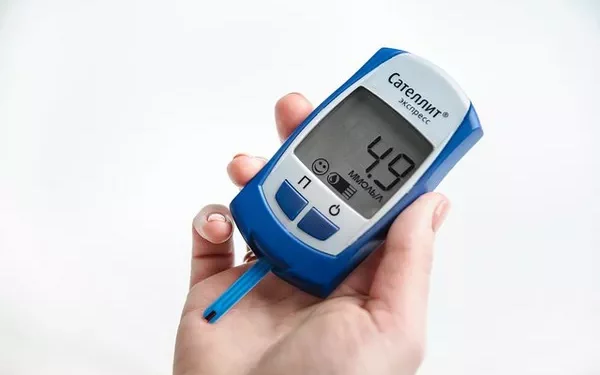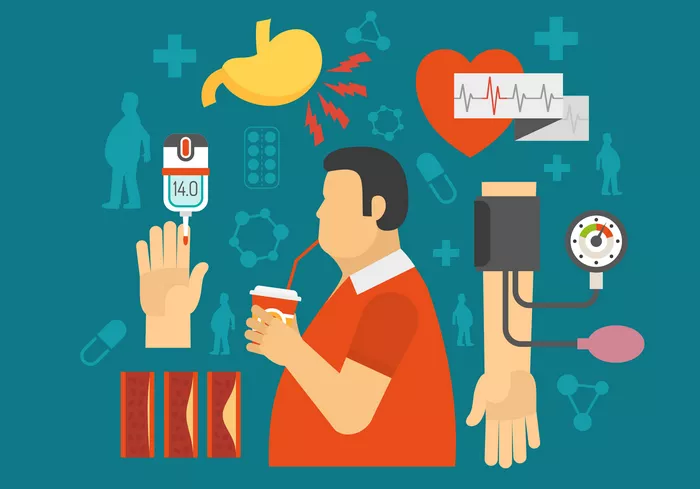Monitoring blood sugar levels is a vital part of managing diabetes and maintaining overall health. Regular blood sugar testing helps individuals understand how their diet, exercise, and medications affect their glucose levels. This article explores various options for where and how to get your blood sugar tested, providing comprehensive insights into each method’s accessibility, advantages, and considerations.
Understanding Blood Sugar Testing
Before exploring testing locations, it’s important to understand the types of blood sugar tests available. There are primarily two categories: self-monitoring of blood glucose (SMBG) and laboratory tests.
Self-Monitoring of Blood Glucose (SMBG)
Self-monitoring involves individuals regularly checking their blood glucose levels using a personal glucometer. This method provides immediate results and allows for frequent monitoring throughout the day. SMBG is crucial for those with diabetes to manage their condition effectively.
Laboratory Tests
Laboratory tests, on the other hand, are conducted in medical settings and provide comprehensive evaluations of blood glucose levels over a longer period. Common laboratory tests include:
Fasting Blood Glucose Test: Measures blood sugar after fasting for at least 8 hours.
Hemoglobin A1c Test: Provides an average blood sugar level over the past 2 to 3 months.
Oral Glucose Tolerance Test (OGTT): Assesses how the body processes glucose after fasting and consuming a glucose-rich beverage.
Understanding these testing options helps individuals decide where to go for their blood sugar testing needs.
Where to Get Your Blood Sugar Tested
Primary Care Physician (PCP) Offices
Primary care physicians are often the first point of contact for health-related concerns. They play a crucial role in diabetes management and can facilitate blood sugar testing.
Advantages:
Comprehensive Care: Your PCP can provide holistic care, considering your overall health and any other conditions.
Personalized Recommendations: Based on your medical history, your PCP can offer tailored advice regarding blood sugar management.
Considerations:
Availability: Appointments may require scheduling in advance, which could lead to delays in testing.
Limited Testing Options: Some PCP offices may only perform basic tests and refer you to laboratories for comprehensive evaluations.
Endocrinology Clinics
Endocrinologists specialize in hormone-related conditions, including diabetes. They provide advanced care and testing for individuals with diabetes.
Advantages:
Specialized Knowledge: Endocrinologists have extensive knowledge about diabetes management, which can lead to better care.
Comprehensive Testing: They often offer a wide range of blood tests, including A1c and glucose tolerance tests.
Considerations:
Referral Requirements: In some cases, a referral from your PCP may be necessary to see an endocrinologist.
Cost: Specialist visits may have higher associated costs, depending on insurance coverage.
Diabetes Clinics and Centers
Diabetes clinics and centers provide specialized services for diabetes management, including blood sugar testing and education.
Advantages:
Comprehensive Services: These clinics often offer a full range of services, including nutrition counseling and diabetes education.
Supportive Environment: Many clinics foster a community atmosphere, providing support from peers and professionals.
Considerations:
Availability: Not all areas have specialized diabetes clinics, which may limit access for some individuals.
Insurance Coverage: Check if your insurance covers visits to these specialized centers.
Pharmacies and Drugstores
Many pharmacies offer blood glucose testing services, making it convenient for individuals to check their levels.
Advantages:
Accessibility: Pharmacies are often more accessible than medical facilities and may offer walk-in testing.
Affordability: Testing at pharmacies can be more cost-effective compared to traditional medical offices.
Considerations:
Limited Services: Pharmacy testing may be limited to basic glucose checks and may not provide comprehensive results.
Variable Quality: The accuracy and reliability of tests can vary based on the pharmacy’s equipment and training.
Urgent Care Centers
Urgent care centers are designed to provide immediate medical care for non-life-threatening conditions, including blood sugar testing.
Advantages:
Immediate Service: Urgent care centers typically accept walk-ins and provide quicker service than traditional medical offices.
Extended Hours: Many urgent care facilities operate outside regular office hours, increasing accessibility.
Considerations:
Scope of Services: While urgent care centers can perform blood sugar testing, they may not offer comprehensive diabetes management services.
Higher Costs: Services at urgent care facilities may be more expensive than those offered at primary care or specialist offices.
Community Health Clinics
Community health clinics provide affordable healthcare services to underserved populations and often include blood sugar testing as part of their offerings.
Advantages:
Cost-Effective: Many community health clinics operate on a sliding fee scale based on income, making them accessible to low-income individuals.
Comprehensive Services: These clinics often provide a range of services, including preventive care and chronic disease management.
Considerations:
Limited Resources: Community clinics may have fewer resources than larger medical facilities, which can affect the availability of advanced testing.
Potential Wait Times: Due to high demand, wait times for appointments can be longer in community health settings.
Hospitals and Medical Centers
Hospitals offer comprehensive medical services, including blood sugar testing, often performed in outpatient or laboratory settings.
Advantages:
Comprehensive Testing: Hospitals can perform a wide range of blood tests and manage complex medical conditions.
Integrated Care: If complications arise, hospitals provide a continuum of care with access to various specialists.
Considerations:
Higher Costs: Hospital services can be significantly more expensive than other testing options.
Appointment Scheduling: Some tests may require appointments, leading to potential delays in testing.
At-Home Testing
With advancements in technology, at-home blood glucose monitors have become increasingly popular, allowing individuals to test their levels conveniently.
Advantages:
Convenience: At-home testing allows for immediate results without needing to visit a clinic or laboratory.
Frequent Monitoring: Individuals can test more frequently, helping them manage their diabetes more effectively.
Considerations:
Initial Cost: Purchasing a glucometer and supplies can require an initial investment.
Training: Individuals must be trained in using the device properly to ensure accurate results.
Mobile Health Services
Mobile health services are emerging solutions that bring healthcare directly to individuals’ homes or local community centers, often including blood sugar testing.
Advantages:
Accessibility: Mobile services can reach individuals in remote areas or those with mobility issues.
Comprehensive Care: These services often provide education and support in addition to testing.
Considerations:
Availability: Mobile health services may not be available in all regions, limiting access for some individuals.
Insurance Coverage: Coverage for mobile health services can vary, so it’s essential to check with your provider.
Workplace Health Programs
Many employers offer workplace health programs that include health screenings and blood sugar testing as part of their wellness initiatives.
Advantages:
Convenience: Testing at work eliminates the need to take time off for medical appointments.
Incentives: Employers may offer incentives for participating in health programs, promoting overall wellness.
Considerations:
Limited Testing: Workplace programs may provide basic testing rather than comprehensive evaluations.
Privacy Concerns: Some individuals may feel uncomfortable discussing health issues in a workplace setting.
Health Fairs and Community Events
Health fairs often provide free or low-cost blood sugar testing as part of community health initiatives.
Advantages:
Community Engagement: Health fairs foster community involvement and awareness about health issues.
Free Services: Many health fairs offer blood sugar testing at no cost, making it accessible to all.
Considerations:
Limited Availability: Health fairs may occur only occasionally, making it difficult to rely on them for regular monitoring.
Variable Quality: The accuracy of tests at health fairs can vary based on the equipment used and personnel training.
Telehealth Services
With the rise of telehealth, many healthcare providers now offer virtual consultations that can include discussions about blood sugar management and testing recommendations.
Advantages:
Convenience: Telehealth allows individuals to consult with healthcare providers from home, increasing accessibility.
Continuity of Care: Regular virtual check-ins can help maintain consistent blood sugar management without needing frequent office visits.
Considerations:
Limited Physical Testing: While telehealth can provide valuable advice and support, it does not replace the need for actual blood sugar testing.
Technology Barriers: Some individuals may face challenges accessing technology or understanding how to use telehealth services.
Local Diabetes Associations and Support Groups
Many diabetes associations and local support groups offer resources and services, including blood sugar testing events or referrals to testing facilities.
Advantages:
Community Support: Engaging with local groups provides emotional and educational support from peers.
Access to Resources: Associations often provide information about testing options and diabetes management resources.
Considerations:
Variable Resources: The availability of testing services may vary by association or group, so it’s essential to inquire about specific offerings.
Participation Requirements: Some groups may require membership or participation in programs to access services.
Preparing for Your Blood Sugar Test
Regardless of where you choose to get your blood sugar tested, proper preparation can significantly impact the accuracy and reliability of your results.
Fasting and Non-Fasting Requirements
Fasting Tests: If you are scheduled for a fasting blood glucose test or A1c, ensure you have not eaten for at least 8 hours prior to the test.
Non-Fasting Tests: Many tests, such as SMBG or random blood glucose tests, do not require fasting. However, it’s essential to follow your healthcare provider’s instructions.
Communicating with Healthcare Providers
Always inform your healthcare provider about any medications, supplements, or dietary changes that may affect your blood sugar levels. Open communication ensures accurate interpretations of your test results.
Keeping Records
Maintaining a log of your blood sugar readings can provide valuable insights for both you and your healthcare provider. Consider documenting the following:
- Date and Time of Testing
- Pre-Test and Post-Test Food Intake
- Physical Activity Levels
- Any Symptoms Experienced
See also: Is There a Bloodless Glucose Monitor?
Conclusion
Getting your blood sugar tested is a crucial step in managing diabetes and maintaining optimal health. With numerous options available, individuals can choose the testing location that best suits their needs, whether it’s a primary care physician’s office, a pharmacy, or a community health clinic.
Understanding the advantages and considerations of each option allows individuals to make informed decisions about their health. Regular monitoring not only empowers individuals to take charge of their diabetes but also fosters a proactive approach to health management. Always consult with healthcare professionals to determine the most appropriate testing method and schedule based on your unique circumstances.
Related topics:
How Do I Know If My Blood Sugar Is Dropping?


























